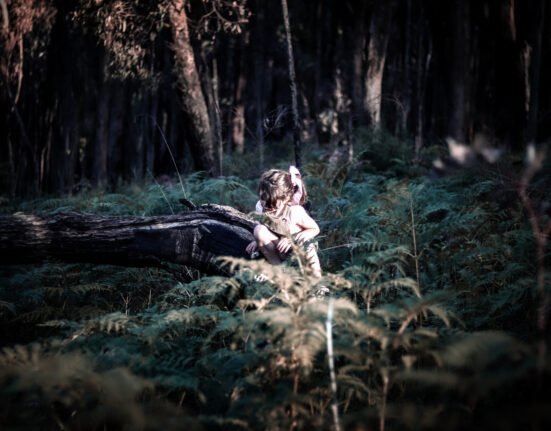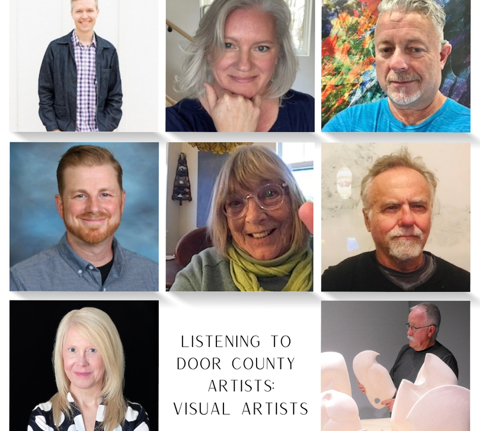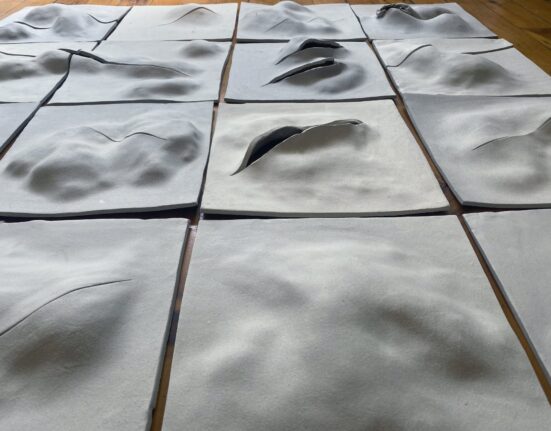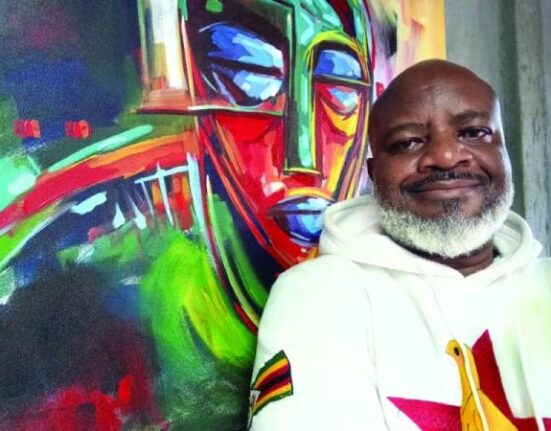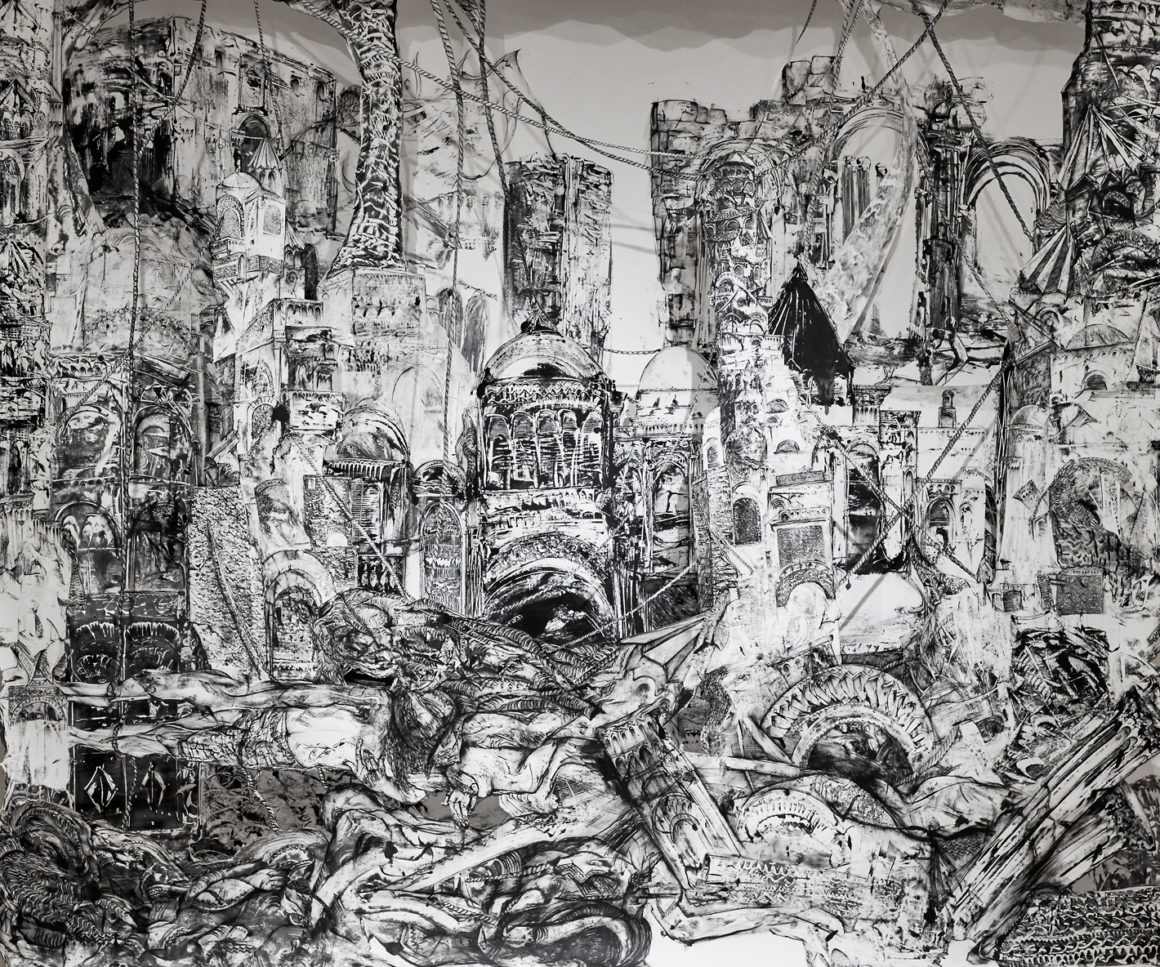
The Iris and B. Gerald Cantor Art Gallery at the College of the Holy Cross, will host Syrian-Armenian visual artist Kevork Mourad for an artist residency this February in collaboration with the College’s Arts Transcending Borders program. Using his signature style of spontaneous drawing and printmaking techniques, Mourad will create “Memory Gates,” an immersive installation. The work, imagined as a series of doors and passageways that visitors can pass through, will explore themes of cultural plurality and collective memory. “Memory Gates” will be on view from March 4 through April 11, 2021.
During Mourad’s residency, students will be invited to work alongside the artist, assisting in the execution and installation of the work as it unfolds. Meredith Fluke, director of the Cantor Art Gallery, says this is a key component of the project: “Our goal is for Holy Cross students to be involved directly in Kevork’s process, and to benefit from Kevork’s deeply collaborative and generative practice. In addition, students will gain intimate knowledge of the work it takes for an artist to conceive and execute a large-scale work of art in situ.”
“Kevork’s multi-faceted artistry and generosity of spirit have given us many opportunities to connect with public school students and immigrant communities in Worcester during previous campus residencies, and we’re very excited to build on this work together with our partners at the Cantor Art Gallery,” adds Yonca Karakilic, director of the Arts Transcending Borders program.
Arts Transcending Borders has previously presented Mourad’s onstage collaboration “Home Within” with clarinetist and composer Kinan Azmeh, and sponsored Mourad’s presence on campus as part of the Silkroad Ensemble’s multi-year residency at the College. As the sole visual artist member of the Ensemble, Mourad often performs alongside musicians; his drawings, which are created in response to the music, are projected onto a screen for the audience. He is inspired by the interplay of musical and visual languages, which he says, “Offers an intensified expression of the cultural legacies I am interested in exploring.”
Mourad has a strong history of collaborative work with musicians and other visual and performance artists, including recent projects with the OYO Dance Troupe in Namibia; a commission from the Metropolitan Museum of Art for the 2019 exhibition “Armenia!,” where composer Vache Sharafyan composed music based on visuals by Kevork Mourad; and an animated film, “Four Acts for Syria,” 2019, with filmmaker Waref Abu Quba, honoring the historical and cultural wealth of his homeland. He was recently invited by the Aga Khan Foundation to create a site-specific 20-foot drawing-sculpture called “Seeing Through Babel” at London’s Ismaili Center, addressing the importance of diversity in our contemporary times.
Kevork Mourad has lived and worked in Brooklyn, NY since 1998. He was born and grew up in Syria to a family of Armenian heritage, his ancestors having sought refuge there from the Armenian Genocide. He received his Master of Fine Arts from the Yerevan Institute of Fine Arts in Armenia, an institution which places an emphasis on cultural traditions in addition to its intensive studio curriculum.
All related programs will be available to the Holy Cross campus community, as well as the general public. Due to the ongoing COVID-19 pandemic, in-gallery visits from off-campus visitors will take place by appointment only. Hours are Tuesday through Friday noon – 5 p.m., with limited Saturday availability. To book an entry time, email prosenbl@holycross.edu or call 508-793-3356. Masks and social distancing practices are required.
EVENTS:
Open Sessions with the Artist via Zoom
Thursday, February 25, noon – 12:45 p.m.
Friday, February 26, 4:30 pm – 5.15 p.m.
Tuesday, March 2, noon – 12:45 p.m.
Opening Artist’s Talk
Live on YouTube
Thursday, March 4, 4 – 5 p.m.
“The Destruction of Images (and Images of Their Destruction)”
A talk by Aaron Tugendhaft, Bard College, Berlin
Monday, March 8, 4 p.m.
Aaron Tugendhaft is a scholar of the ancient Middle East, teaching courses focusing on religion, political philosophy, and the arts at Bard College Berlin. He is the author of “The Idols of ISIS: From Assyria to the Internet” (University of Chicago Press, 2020) exploring the political power of images and the significance of their destruction.

